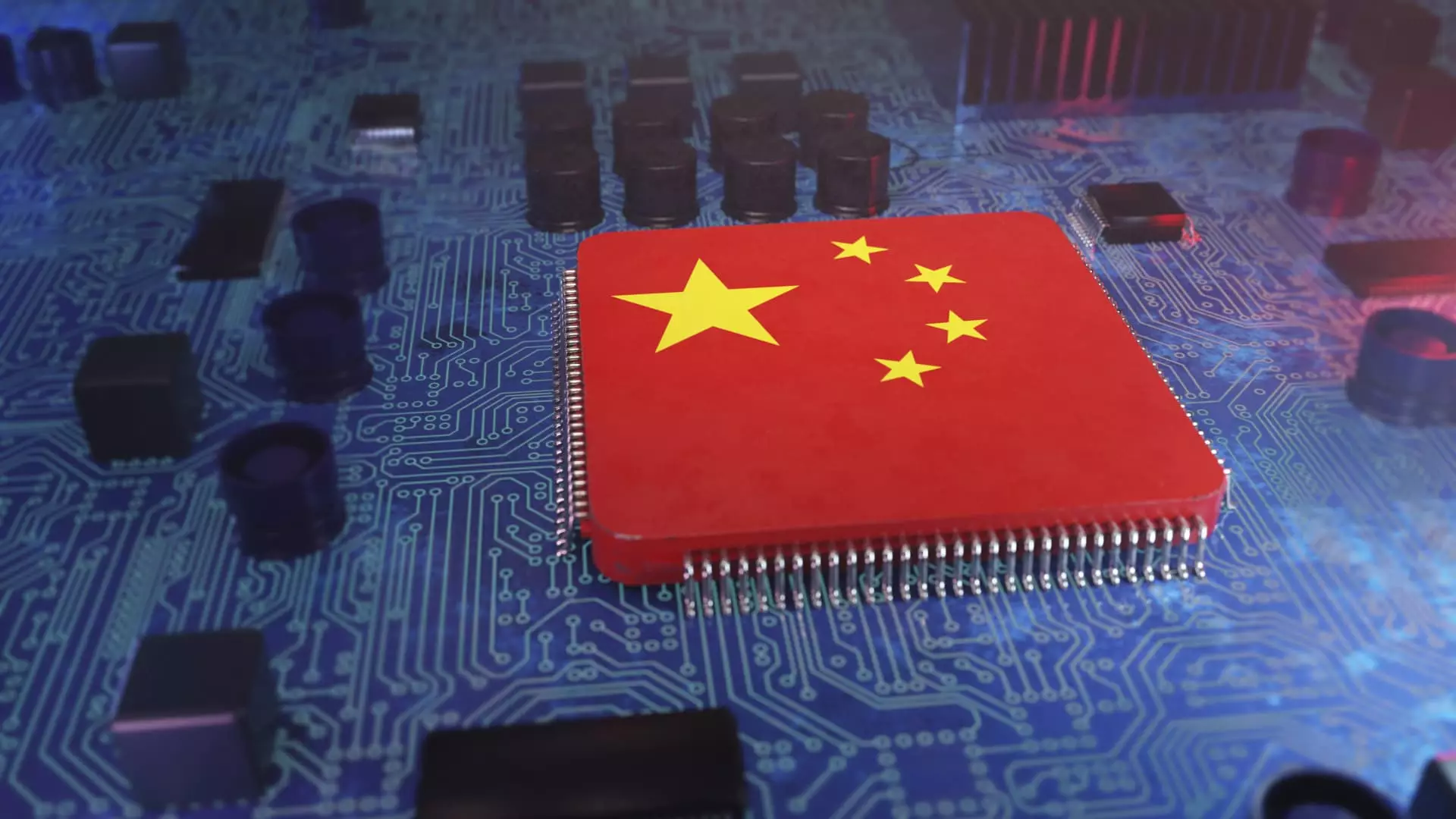The landscape of international trade and technology is continuously reshaped by emerging technologies, and the current surge of generative artificial intelligence (AI) in China exemplifies a marked shift in strategy for Chinese companies. As the geopolitical tensions between the United States and China escalate, tariffs and trade restrictions have generated insecurity among businesses. Yet, amidst this uncertainty, a new era of innovation is dawning in China that has the potential to reinvigorate its economy and reshape its role on the global stage.
In contrast to previous years where trade disputes dominated headlines, the current narrative showcases a different kind of competition: one rooted in technological advancement. Chinese companies have increasingly turned to AI as a means to navigate the challenges posed by U.S. tariffs, applying innovative solutions to streamline operations and enhance product offerings. Recent announcements from firms such as Kuaishou and Tencent highlight a robust ecosystem racing to leverage AI for competitive advantage.
AI as an Economic Lifeline
Kuaishou’s recent success with its video generation tool, Kling, which has garnered over $13 million in revenue, indicates not just a hunger for technological solutions but also a market ripe for AI-driven innovations. Similarly, Tencent is making significant strides with its upgraded AI-driven 3D visuals model, which has applications in gaming and manufacturing sectors. This dual approach—developing consumer-facing products while simultaneously enhancing industrial capabilities—offers a glimpse into how AI could serve as an economic lifeline during turbulent times.
Moreover, the exponential growth of daily users for Tencent’s Yuanbao chatbot serves as a testament to the compelling appeal of AI tools. As farmers utilize the platform to gain insights into soil conditions, this not only underscores the versatility of AI applications but also emphasizes the profound impact these technologies can have on traditional industries. In sectors historically resistant to change, such as agriculture, AI is proving to be a catalyst for innovation.
The Unique Advantage of Physical Data
China possesses a distinctive advantage in the burgeoning field of “physical” AI, owing largely to its vast manufacturing capabilities. As emphasized by Maxwell Zhou, CEO of DeepRoute.ai, the country’s rich hardware ecosystem enables the collection of immense volumes of data critical for training industry-specific AI models. This foundational strength positions Chinese firms to create tailored solutions that resonate not only domestically but also globally.
The strides being made in autonomous delivery technologies further illuminate this potential. DeepRoute.ai’s project to facilitate voice-command parcel deliveries signals a future where AI is not merely an auxiliary tool but a central component of consumer interaction and logistics. With plans to operationalize this system by early next year, China is poised to set the benchmark for operational efficiency driven by AI.
Optimism Amid Uncertainty
While the future remains fraught with uncertainties—such as the anticipated increase in U.S. tariffs—many analysts are optimistic about what AI can achieve for corporate earnings in China. Investment strategist Ding Wenjie suggests that AI tools could not only mitigate the anticipated losses due to economic slowdowns but may also usher in a broader era of corporate growth. This shifting outlook reveals a critical juncture where innovation may offset disruptive economic forces, offering a glimmer of hope for Chinese businesses grappling with external pressures.
The discourse around U.S.-China relations extends far beyond trade agreements. Notably, insights from influential commentators like Thomas Friedman suggest that the focus should pivot toward a collaborative approach in AI development that parallels historic arms control negotiations. Recognizing that the stakes associated with AI are as significant as those tied to nuclear capabilities, it is increasingly clear that both nations may need to reassess their priorities for future engagement.
Charting a New Path Forward
As the world braces for the unfolding implications of generative AI, China’s aggressive advancements in this realm may very well redefine its place in global affairs. The intersection of innovation and economic strategy presents an opportunity for Chinese enterprises not just to survive but to thrive. In a time of shifting alliances and economic complexity, the ability to harness and innovate around AI will serve as a crucial differentiator.
As generative AI transforms industries and drives economic growth, its role transcends that of a mere technological tool; it is poised to become a cornerstone of resilience, setting the stage for a new narrative in international relations and economic strategy. The anxieties tied to trade tariffs may soon give way to excitement around the possibilities that advanced technology can deliver.

